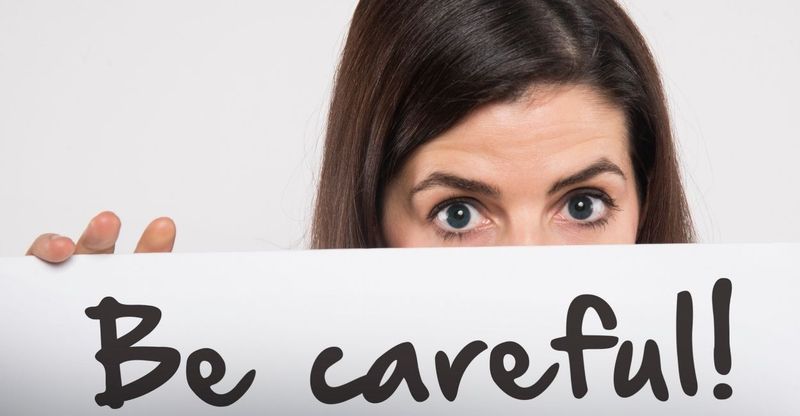Do you ever wonder why certain things hit you harder than they should? Or why your skin tingles when someone’s mood shifts in the other room? It’s not just you.
Growing up in emotional chaos leaves a print—one you can feel, even when you pretend it’s not there. This isn’t about blame or self-help clichés. It’s about seeing yourself—maybe for the first time—with honesty and a little bit of mercy.
Here are 15 traits that grow in the cracks of an unpredictable childhood, each with its own flavor and story.
1. Hypervigilance: Always on Guard
Picture this: You walk into a room and instantly sense the undercurrent—who’s tense, who’s faking calm, where the nearest exit is. It’s not paranoia; it’s survival. Childhood trained you to read a room faster than most people blink.
You probably keep tabs on everyone’s mood, even if it exhausts you. Small cues—a sigh, a look, a shift in tone—set off inner alarms. Your nervous system learned early that safety means staying alert.
Some days it feels less like a skill and more like a burden. But that radar? It’s not broken. It’s just wired for storms that already passed.
2. People-Pleasing: The Art of Disappearing
Did you ever apologize for things you didn’t do, just to keep the peace? Maybe you said yes when you meant no—because the cost of conflict always felt too high. That’s people-pleasing in disguise: shrinking yourself to avoid being a target.
Sometimes you catch yourself offering help you can’t afford, hoping someone will see you as valuable. You learned that pleasing others was the fastest way to dodge emotional landmines at home.
Underneath the smiles, there’s often a quiet ache. You wonder if anyone actually knows you, or just the version you crafted to survive.
3. Emotional Numbing: Turning Down the Volume
You know that moment when someone asks how you feel, and your mind goes blank? Emotional numbing isn’t about being cold—it’s about safety. Sometimes shutting down is the only way your heart knew how to cope.
Big feelings became too much, so you turned the dial down or off. Maybe you catch yourself zoning out during arguments, or feeling nothing when you expect to cry. It’s not indifference—it’s armor.
You may wonder if you’re missing out on life’s highs. But remember, this numbness served you once. Now, you get to decide how much to feel.
4. Fear of Conflict: Dodging Landmines
Conflict used to mean danger, not just disagreement. Maybe your breath quickens or you freeze up when voices rise. You learned that staying silent was often safer than speaking up.
It’s more than discomfort—it’s a physical reaction. Even minor disagreements can feel like the floor dropped out beneath you. You replay conversations, second-guessing if you said too much or not enough.
You might even avoid setting boundaries because the backlash feels unbearable. But that fear? It’s not weakness. It started as self-protection, and it’s hardwired deep.
5. Perfectionism: Outrunning the Critic
Perfectionism isn’t about loving neatness. It’s about avoiding the sting of criticism—the kind that could explode over small mistakes. You probably felt safest only when you did everything right.
Every detail becomes urgent, every task a test. Sometimes your inner critic is louder than anyone else in the room. It convinces you that one misstep could bring chaos crashing in again.
This chase for flawlessness is exhausting. You wonder if rest is something you’ve earned, not something you deserve. Perfection was never the prize—it was just the best armor you had.
6. Shame Spirals: The Invisible Weight
Ever catch yourself replaying old mistakes on loop? Shame doesn’t just sting—it settles into your bones. Growing up, you probably got blamed for things that weren’t yours to carry.
One wrong move, and suddenly you’re not just wrong, you’re broken. The smallest missteps turn into proof that you’re unlovable. It’s a cycle that’s tough to break—each spiral digs deeper.
What’s wild is how good you are at hiding it. On the outside, you hold it together. Inside, that shame whispers lies that stick tighter than any compliment ever could.
7. Difficulty Trusting: The Cautious Heart
Trust wasn’t handed to you. You learned early not everyone keeps their promises, and that sometimes love comes with a catch. So you grew careful—guarded even when you longed to lean in.
You might test people, watching if they’ll stick around when you’re real. Vulnerability feels like walking a tightrope—one wrong move and everything shatters.
But here’s the twist: behind your caution is a heart that aches for connection. Trust is hard to offer, but it’s not impossible. It just feels like a risk you measure twice, cut once.
8. Control Issues: Holding the Reins Tight
Chaos growing up meant you had to grab control wherever you could. Now, order feels like oxygen. You might organize, plan, and micromanage—anything to keep the old unpredictability at bay.
Letting go, even for a moment, can make you restless. You rely on routines to feel steady, sometimes to the point where change feels threatening.
It’s not about being bossy. It’s about recreating a sense of safety in a world that once felt anything but. Control is comfort—maybe not peace, but a close second.
9. Emotional Reactivity: The Quick Spark
Some people say you’re sensitive—but it feels bigger than that. Your feelings can flare up fast, sometimes before you even know why. It’s like your nervous system has no chill button.
Little things can set you off—a sharp word, a missed text, a look that lasts too long. The world tuned you to catch danger, and now your emotions echo that old urgency.
You might regret what you say in the heat of the moment. But those fast reactions aren’t flaws; they’re old alarms ringing for storms that already passed.
10. Avoidance of Vulnerability: Armor Up
Letting people in feels risky—like inviting someone to see the mess you worked so hard to hide. Vulnerability never felt safe growing up; it meant giving ammo to those who could hurt you.
You learned to build walls instead of bridges. Even close friends might not know your soft spots, because you treat openness like a luxury you can’t afford.
You crave real connection but fear what honesty might cost. That armor? It kept you safe once. Now it just keeps you lonely.
11. Disconnection from the Body: The Missing Signal
Ever skip meals, ignore pain, or forget to rest? You might not even notice until your body screams for attention. Emotional chaos taught you to numb physical needs the way you did feelings.
It’s easy to disconnect—especially when your body felt like the enemy or a liability in the past. Hunger, exhaustion, or even joy can all feel muted, like background noise you’re not allowed to notice.
Learning to listen again isn’t easy. But every time you pause and check in, it’s an act of self-respect you never got taught.
12. Parental Over-identification: Feeling Your Child’s Hurt
When your child cries, you feel it in your bones. Their pain echoes the old aches you swallowed as a kid. Parenting with a history of chaos means you sometimes over-identify, blurring the line between their feelings and your own.
You want to protect them from every sharp edge the world ever handed you. But sometimes, that urge makes you anxious or over-involved. You see their struggles, and it’s like watching yourself in reruns.
It’s not about weakness; it’s empathy dialed up to the max. You care fiercely—sometimes too much for your own peace.
13. Panic in Uncertainty: The Edge of Control
Uncertainty feels like standing on a cliff, wind howling, nothing to hold on to. Growing up, you learned that the unknown was never just neutral—it was dangerous. Plans that changed meant trouble was coming.
Now, “wait and see” makes your skin crawl. Delays, surprises, unanswered texts—they all trigger a sense of dread that’s hard to explain to others. You crave predictability, clinging to routines.
Panic isn’t about weakness here. It’s your mind’s way of bracing for storms—even if the sky looks clear.
14. Difficulty Receiving Care: The Closed Door
When someone is kind to you, do you freeze or want to run? Receiving care can feel awkward—like you’re waiting for the catch. Neglect or emotional distance in childhood rewired your sense of what’s safe to accept.
You might downplay your needs, brushing off help as unnecessary. Part of you still believes you’re supposed to handle it all alone, or that kindness always comes with a hidden cost.
Letting others in is a learned skill—one you didn’t get a chance to practice early on. Now, it’s a door you can open one inch at a time.
15. Low Self-Esteem: The Quiet Doubt
There’s a quiet story you tell yourself: maybe you’re not enough. Kids in chaos rarely get the validation they need, so doubt creeps in early and sticks around. That voice in your head isn’t just critical—it’s relentless.
Compliments bounce off you, but criticism lands like a punch. You wonder if love is something you have to earn, or if being yourself is ever enough. It’s a tough script to rewrite.
Low self-esteem isn’t laziness or self-pity. It’s a scar that says, “You’re unworthy,” written by hands that should have lifted you up. You can change the ending, one truth at a time.
















